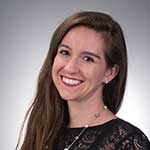I began leading workshops some thirty-six years ago. We were living under a dictatorship, and I realized a community was forming, which, at the time, I found to be very important. Those workshops were held in my home, and they were quite diverse. There, I organized a basic approach that ensured the workshop would serve its purpose, but otherwise it seemed (seems) important to me to allow the conversation to flow. In fact, I’ve always associated this work with my time both in academia (for decades at Chilean universities) and in literary creation, because I believe I understand the dilemmas that writers experience. But at the heart of my work with the small communities I’ve met with, it seems important to me to delve into reading voraciously, and only then to focus on writing (the word).
Later on, I worked regularly, for more than a decade, a semester a year, at New York University (I retired in 2020). The whole time I was giving workshops, I simultaneously taught at Chilean universities, instructing master’s-level classes in Latin American literature. This academic duality proved to be important to me because these diverse literary journeys allowed me more flexibility, in a way, a broader range of readings, perspectives, and imaginations.
I’ll speak from my perspective; I know there may be different opinions. I’ll reiterate that I think of my role in a workshop as that of a writing companion. I’ll also reiterate that I think of each workshop as a micro-community: one either diverse or very diverse. So, for me, the other, the others, are paramount. The challenge is to move beyond the self and step into the other as if it were one’s own. Reading the other stripped down or stripped of the self, seeing the desire that runs through the letters in every text and tending to that desire. From an ethical standpoint, so to speak, I’ve never covered or mentioned a book of mine in any of these numerous communities. It seems completely inappropriate to me, and that’s been a fixture of these spaces. I consider myself prepared or perhaps, modesty aside, very prepared to delve into different literary structures and identify their areas of strength and where they could be strengthened. That is my job, my place inside a workshop community.
The writing process is quite interesting to witness; that is, how the wording of a text is drafted, the stumbling blocks, the pauses, the limitations, the redrafting, in short, the certainty that writing literature is work that requires persistence and strength.
My work, of course, examines literary production, but that production takes shape through the dedicated deep reading of the participants. Reading literature through the lens of literature requires a more specific craft; it requires, among other things, delving into structures, in detail, it needs some interpretative risk. My point is that, reading someone else in a way that focuses on each aspect of the work, ultimately, allows one to read the self. Doing so contributes to strengthening one’s own production. Without the ability to read/read-the-self I find it difficult to pull off a powerful text.
Translation by Michelle Mirabella



